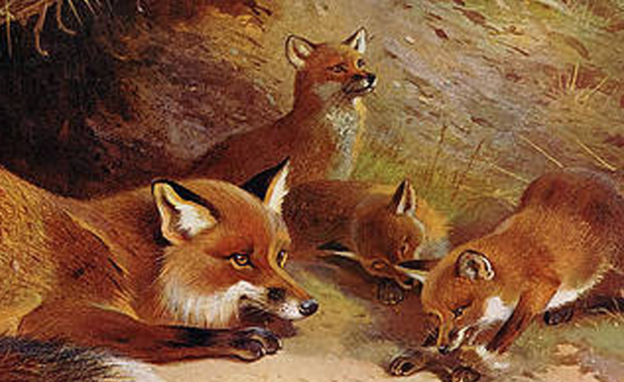After the episode at Timnah where the Philistines manipulated Samson’s wife to reveal his secret riddle, Samson went home angry and all seemed well. The woman Samson married was given to his best man. Problem solved for the Philistines?
Judges 15 continues the story of conflict between Samson and the Philistines. However, this conflict is driven not by ideology or devotion to God, but by his own passion, pride, and temper. While God uses this to mock and begin to destroy the Philistine oppression of Israel, it does not reflect well on Samson as a person or a leader. This reminds us that God uses even base motives to advance his cause, but also that only a sinless man can rescue us from oppression.
While the Samson problem appeared resolved, things were only just heating up. After cooling off, Samson decided to go spend time with his new wife, but was stopped by his wife’s father (v.1). Unfortunately, his wife had been married off to his best man; but her sister was attractive and available if interested? (v.2)
Samson was incensed at his wife being given away to cover up his father-in-law’s embarrassment, and declared himself innocent in his revenge (v.3). The revenge was to tie flaming torches to 300 foxes and set them loose amongst the Philistine fields, destroying their harvest (vv.4-5).
This was economic warfare which shocked the Philistines into action. After they discovered the who (Samson) and the why (his wife was given to another man), they fought fire with fire and sought to solve this problem by killing his wife and father-in-law (vv.6-7).
If that was meant to solve things, it only made things worse. Samson took their deaths as a personal attack, and “struck them hip and thigh with a great blow” in great slaughter in vengeance (vv.7-8).
The Philistine solution to this escalation was to capture and kill Samson – problem removed, problem solved. They advanced against Lehi in Judah, to attack and induce them to give Samson up (vv.9-10). A contingent of Judah’s forces assemble, not to attack the Philistines but to capture Samson.
Sadly betraying the depths of their despair, showing that they do not even feel their chains, they asked Samson “Do you not know that the Philistines are rulers over us? What then is this that you have done to us?” (v.11). While Samson was no leader, he judged people who did not realise their true situation.
Samson did not object to Judah binding him up, so long as they agreed not to hurt him themselves (vv.11-13). Of course, they were happy for the Philistines to do the hurting, so long as it did not upset their quiet life.
Unfortunately for the Philistines, compliant Judah had not solved their problems. This was not a purely physical war, but a spiritual one too. The Spirit of the LORD rushed on Samson, empowering him to snap his ropes like they were flax on fire, pick up a jawbone of a freshly dead donkey (another Nazirite no-no), and strike down 1000 Philistines (vv.14-17).
To commemorate his victory, the place was named “Jawbone Hill”.
After this feat of strength, Samson was extremely thirsty. He cried out to God for help, recognising that he lacked sufficient strength to save himself even if he could kill the Philistine masses with the jawbone of an ass (v.18).
God answered Samson’s prayer by splitting open the ground to provide water for Samson to revive his tired spirit. Thus Samson renamed Jawbone Hill to “The Caller’s Spring”, recognising his dependence not his self-sufficiency (v.19).
After this account, the text notes Samson judged Israel, but not for a full generation. Like only Jephthah with his shortened reign, Samson judged Israel for a half-generation, 20 years (v.20). Samson’s sinfulness will catch up with him.
It is clear that Samson’s purposes are motivated by personal causes rather than devotion to God. Yet despite this, God still uses Samson’s base motives to fulfil his plan to begin to free Israel from the Philistines.
This reminds us that God can use circumstances and situations where people are motivated by sinful acts and motives to achieve his will, even preaching the gospel (Phil. 1:15-18). But it also reminds us to stop and reflect on our motives, and whether they reflect a godward ambition or a “happy alignment” of our own desires and serving God.
This passage also reminds us of the importance of fighting sin for another reason – if we do not, eventually God’s People forget and accept their sorry state. Judah, which had initially led God’s People (1:1-20) were willing to sacrifice him than accept his leadership and rise up. We too, if we do not fight the sin in our lives, will become complacent with its presence in our lives and the world.
Sinful Samson could not lead a sinful people. Only sinless Jesus, whose motives were pure and perfectly aligned with God, could ultimately defeat our oppressor, sin, and draw us to follow him into paths of righteousness.


